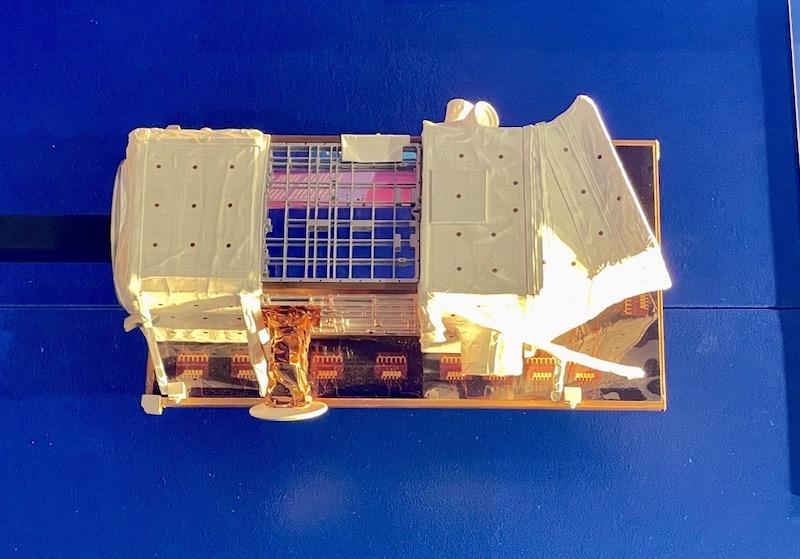Leonardo In Talks With Airbus, Thales On Satellite Manufacturing Tie-Up

Leonardo has been supplying satellite sensors such as those used in the Italian space agency’s Prisma Earth observation mission.
FARNBOROUGH—As Leonardo strengthens its involvement in space activities with the creation of a dedicated division, the Italian company is talking to Airbus and Thales about linking their satellite manufacturing businesses, officials said July 23 at the Farnborough Airshow.
The potential move, first reported by La Tribune in France, would help Airbus Defense and Space and Thales cope with slow demand. The two companies have traditionally based a significant proportion of their activity in geostationary telecommunications satellites—the relative importance of which has declined in an evolving market. Leonardo and Thales have long been major players in such spacecraft via their Thales Alenia Space joint venture.
Airbus, Leonardo and Thales are asking themselves questions about their futures, says Franco Ongaro, Leonardo’s chief space business officer. “Europe needs larger champions in the space industry, but such companies are not easy to create in the current environment. We are talking together about what the future may look like for companies like ours.”
Where precisely might cooperation with the other two companies be useful? Any company looking at such a perspective will examine its own strategy, Ongaro says. If the proposal is consistent with the strategy, and if Leonardo can act together with Thales, its current partner, then it would be good, he says. “If it goes in another direction, then it would not be as good for us,” he adds.
Leonardo’s space division was officially formed on March 12. It consolidates the work of Telespazio—another joint venture with Thales—in space-based information and satellite operations services. Leonardo’s new space arm also absorbed several product lines from Telespazio’s electronics business, which has produced components such as spacecraft sensors.
As a rationale for the creation of the new space division, Leonardo is becoming a data-centric company, and space is one of the pillars supporting that vision, Ongaro explains. “It is a multiplier of efficiency on all our platforms,” he says. Space contributes to information superiority, Thales Alenia Space Deputy CEO Massimo Comparini adds.
Moreover, projections suggest the space market is set to grow faster than Leonardo’s other institutional markets, Ongaro says.
Company executives felt a need for visibility. “Leonardo is not very well known,” Ongaro says. Yet, it is present everywhere in the value chain. For instance, in the European Union’s second-generation Galileo positioning constellation, Leonardo Space manufactures the atomic clocks, Thales Alenia Space is in charge of six of the satellites and Telespazio will orchestrate operations from the ground, he points out.
Telespazio’s consolidation into Leonardo’s revenues will encourage investment, he adds.
